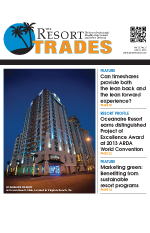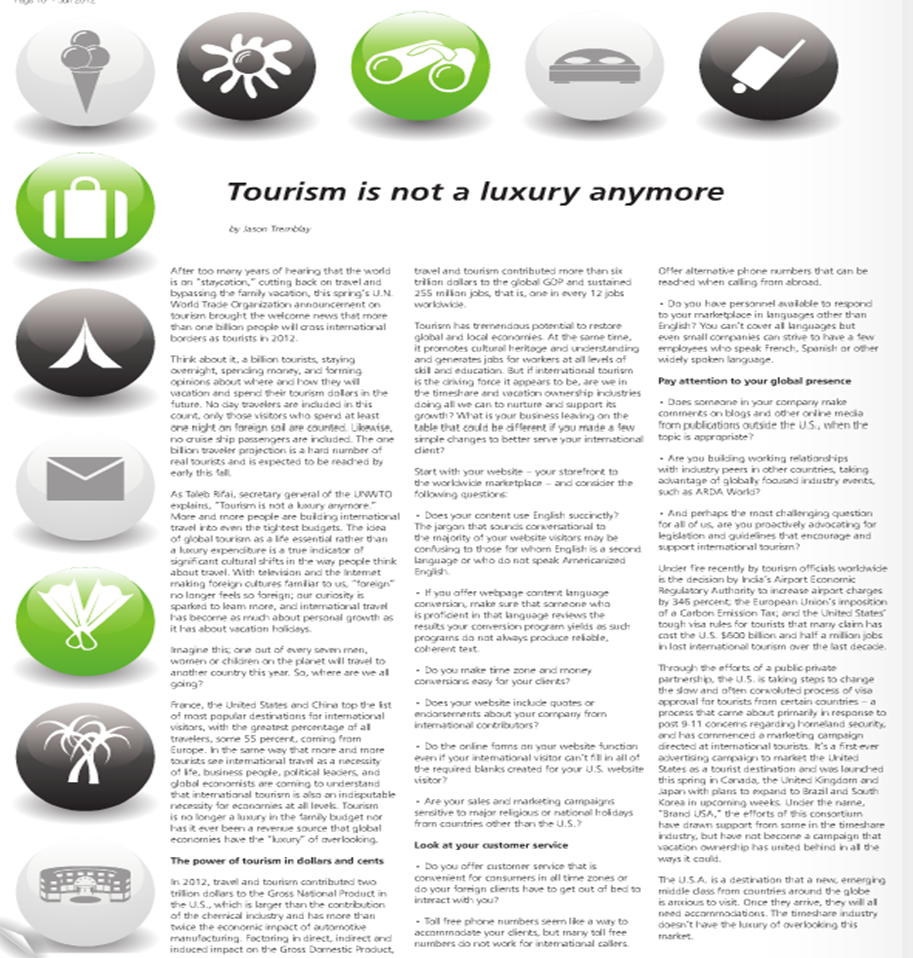6 Myths of Timeshare Ownership: A Hostage Situation
Monday, July 29, 2013
The Resort Trades is a reliable, insightful, and often provocative resource for news about the timeshare industry and vacation and timeshare ownership. We are deeply appreciative of their permission to share this article, which originally appeared in the June issue of The Resort Trades.
The article was written by Jason Tremblay and is reprinted here with permission from the publisher.
The Six Myths of Timeshare Ownership: A Hostage Situation
by Jason Tremblay
Last year I had the opportunity to meet author Morey Stettner through an interview and an article he was writing for the Portsmouth Herald. Morey is the author of a number of excellent business books, most dealing with the topic of management.
But one of his books specifically, “Skills for New Managers,” (©2000, McGraw-Hill) not only offers excellent wisdom for workers making the transition to management positions, but provides parallel insights for all of us in timeshare and vacation ownership sales, marketing, and resort management. It seems that the verities of dealing with employees are remarkably similar to the truths about dealing with timeshare buyers, sellers, guests, and owners.
Morey looks at the misconceptions new managers often bring to their roles in a chapter he titles, “Piercing Six Myths of Management.” With his permission, I’ve refocused these myths to also address the business-to-consumer relationship between the timeshare industry and its market.
Myth 1: You must call all the shots
“Employees,” Morey points out, “make an average of 100 unsupervised decisions a day.” He adds, “Don’t believe for a second that just because you’re a manager, you’re in charge of everything.”
But if employees make an average of 100 unsupervised decisions a day, timeshare owners and guests must collectively make thousands of decisions daily regarding how they will use (and sometimes misuse) their timeshares and the benefits of vacation ownership. Much like business managers trying to control their staffs, timeshare companies sometimes find that trying to micromanage the ownership experience feels like herding cats.
What’s the solution? For business managers, getting in the trenches and demonstrating by example is one way to guide staff members on how a manager would like a task accomplished. For timeshare companies, the answer to this dilemma is much the same. Look at timeshare ownership, points, and usage guidelines. Evaluate whether they are logical and clear from the perspective of an owner or someone new to timeshare.
Go on your own website and explore the user experience. Click the links, follow the instructions, and see how your timeshare product looks through the eyes of owners and prospective buyers.
The fact that so many timeshare owners don’t understand the product they own and miss out on many of their benefits, is a problem that can only be blamed on timeshare ownership stipulations that are unnecessarily complex. Vacationing and everything about it is supposed to be fun and easy.
Myth 2: You can’t trust anyone
In “Skills for New Managers,” Stettner points out the destructive management myth that perpetuates the idea, “it is foolish to trust employees.” But seasoned management personnel know that trust is important, recognizing that having faith in your team is often the best way to earn their trust in return.
In timeshares and vacation ownership, we need to learn to trust consumers when their instincts tell them they can’t afford to buy a timeshare or upgrade their ownership. Twisting someone’s arm in order to make a sale is never a good basis for starting a relationship. Likewise, we must trust owners when they tell us they can no longer afford their timeshares or that they have experienced life events that make it impossible for them to continue to use their vacation ownership. No product should come with a life sentence attached to it.
Myth 3: You must remain objective at all times
This myth is simple to bust. No one ever builds a long-term relationship with an automaton. Whether we are managing a team, responding to owners at a resort, or working with timeshare buyers and sellers, stoic and inflexible rarely serves any of us well. We need to be warm, personable, and human, even when it means bending the rules to serve the situation.
Myth 4: You must defend your staff
Whether it’s workers on a team, at a resort, or on a timeshare sales and marketing staff, if there’s a breakdown, we are obligated to step up and honor our client or customer’s position. This is not a matter of throwing employees, resorts, or brands under the bus. But when our team, our company, or the timeshare product itself is off base, it’s incumbent upon us to do everything within our power to make things right. Every time we fail to do this and a client or potential client walks away dissatisfied, we have launched a grass-roots marketing campaign with an anti-timeshare message.
Myth 5: You cannot back down
No company has ever created policies and protocols that are unimpeachable. While millions of timeshare owners say they are satisfied with their timeshare ownership, far too many others make it clear they are frustrated with points and membership systems that are unnecessarily complex, ownership they can’t get out of, and fees they can’t budget for in today’s challenging economy. If aspects of the timeshare product beg to be reinvented, let’s reinvent them!
Myth 6: You’re the best teacher
The best teachers are always those who teach in the way the student is receptive to learn. If the vacation ownership industry was effectively communicating with owners and with the marketplace, we would stop reading weekly headlines about the fraud, failure, and deception of timeshare.
Either timeshare is a bad purchase, as so many financial advisers suggest, or we, individually and collectively, are failing in communicating the real benefits of timeshare. The timeshare industry is not a victim under senseless attack by the media. We are teachers who are missing the mark in articulating the value proposition of our product in a way the marketplace understands.
As Morey Stettner points out in his frank look at the management relationship, “You’re one of many sources of insight for your employees.” The same is true for all of us in the business of timeshare.
We are a source of insight and understanding for timeshare owners, buyers, sellers, and renters. When our messaging is unclear or we all sing out of different songbooks, then owners and those who might be owners tune us out and listen to timeshare’s critics, whose words seem to resonate with more clarity.
Morey Stettner coaches new managers to listen to their own words and then ask themselves three questions:
- Did I say what I wanted to say?
- Did I use words and phrases that my employees will understand?
- Did I communicate clearly and concisely?
These are three great questions for us to ask ourselves. Vacation ownership has a tremendous value proposition to offer. But until we get past the myths that dog us within the industry, we may never be able to “communicate clearly and concisely,” breaking down the misconceptions that hold our industry hostage.
———————————-
Thank you again, Resort Trades for your permission to share this article.





